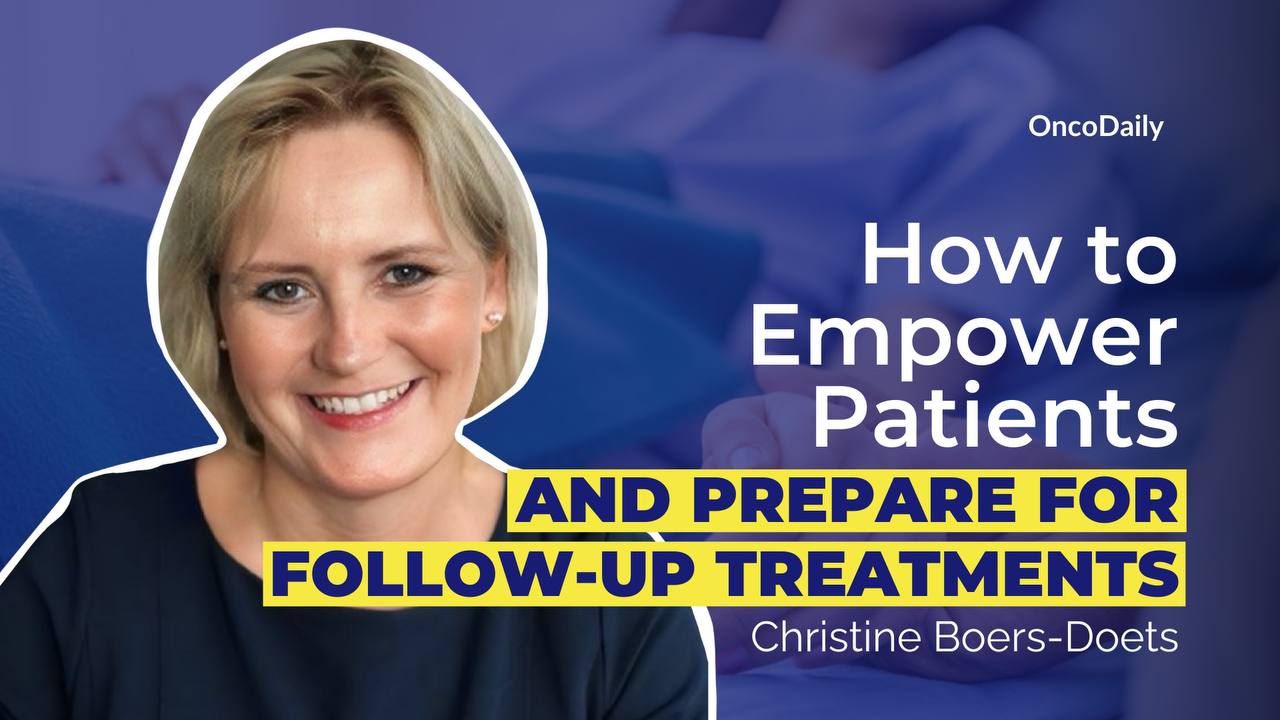In this episode of OncoDaily Interviews, Dr. Christine Boers-Doets, an expert in side effect management, shares her insights on improving patient care in oncology, particularly in preventing and managing side effects from cancer treatments. She highlights the importance of addressing patient concerns through targeted questions to improve treatment outcomes.
Christine Boers-Doets is a Quartermaster at the Dutch Expertise Center for Side Effects of Cancer Medicines. She was also the Founder, Side Effects Expert, Senior Trainer, Coach and Mentor at CancerMed Side Effects Institute B.V. In addition, she was also the CEO and founder of Impaqtt Foundation and CancerMed. She has also served as a doctoral researcher at Leiden University Medical Center.
Hi, I’m Dr. Christine Boers-Doets. I’m from origin a nurse and I specialize into side effect management, especially with immune oncology and this type of agents. What I have learned in my career is that we can do so much more for patients than we do right now and especially when it comes to prevention of side effects from cancer medication.
Because the numbers are not lying. The numbers are that more than 55 percent of the patients on a cancer drug get a dose delay. So instead of four weeks, say six weeks in between because of side effects and more than one third of the patients get a dose reduction and nearly one-fifth of the patients will start early, will stop early with the treatment because of the side effects and that are huge numbers we need to decrease and that’s the reason why I became a side effect expert because I told my patients I will help you get rid of the side effects.
So my presentation at MASC is this time how you can prepare patients after surgery for the period when they go home and it depends on when the surgery is. If the surgery is in the beginning of the treatment, in the middle of the treatment or at the end of the treatment.
The patients have all the time different needs depending on when the surgery is in the treatment journey and of course every patient has his own specific questions and needs depending on their personal situation and that’s so important and if you want to know which questions they have and what they what their information need is, it’s important to ask them three questions
So when you know for instance it can be that you get nausea from chemotherapy or hair loss or that you don’t know how to bring your your children to school or how you do with work, these are all two totally different needs and you need to address the needs of the patient first before you can inform the patient about the further treatment because when they have a question in their mind, they keep the question in mind and can’t listen and when you turn it around
And you start this asking question what bothers you most, they get space in their head and they get space in for the information you’re giving and you will see you will have such better treatment outcomes when if you do it instead of you not doing that.


